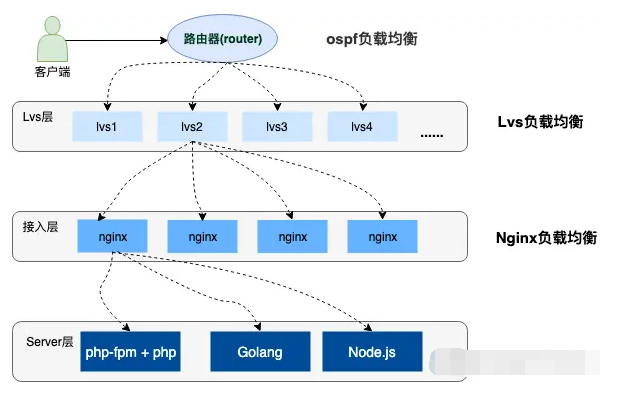 Backend Development
Backend Development PHP Tutorial
PHP Tutorial Analysis of thread safety issues in PHP high concurrency processing
Analysis of thread safety issues in PHP high concurrency processing
Analysis of thread safety issues in PHP high concurrency processing
In a high concurrency environment, thread safety is a very important issue. In PHP development, especially when handling a large number of concurrent requests, thread safety must be considered. This article will analyze thread safety issues in PHP's high concurrency processing and provide some code examples.
- Definition of thread safety
Thread safety refers to ensuring the correctness and reliability of the program in a multi-threaded environment. When multiple threads read and write the same resource at the same time, if thread safety measures are not taken, data may be confused, lost, or damaged.
- Thread safety issues in PHP
In PHP, since each request is an independent process, each request is also an independent thread. This means that multiple requests may access shared resources at the same time, such as global variables, files, databases, etc. If thread safety is not considered, various problems may arise.
2.1 Global variables
Global variables are thread-safe by default in PHP, but when multiple requests access them at the same time, confusion in variable values may occur.
Sample code:
$count = 0;
function increment() {
global $count;
$count++;
}
// 并发请求时可能会导致$count异常
for($i = 0; $i < 1000; $i++) {
increment();
}
echo $count;The solution is to use a mutex lock to ensure that only one thread can access the shared variable at the same time.
$count = 0;
$lock = fopen("lock.txt", "w");
function increment() {
global $count, $lock;
flock($lock, LOCK_EX); // 加锁
$count++;
flock($lock, LOCK_UN); // 释放锁
}
// 使用互斥锁保证线程安全
for($i = 0; $i < 1000; $i++) {
increment();
}
echo $count;2.2 File Operation
In a high-concurrency environment, multiple threads writing to the same file at the same time may cause data loss or damage.
Sample code:
$file = fopen("data.txt", "a");
function writeToFile($data) {
global $file;
fwrite($file, $data);
}
// 并发请求时可能会导致文件数据混乱
for($i = 0; $i < 1000; $i++) {
writeToFile("data");
}
fclose($file);The solution is to use a file lock to ensure that only one thread can write to the file at the same time.
$file = fopen("data.txt", "a");
$lock = fopen("lock.txt", "w");
function writeToFile($data) {
global $file, $lock;
flock($lock, LOCK_EX); // 加锁
fwrite($file, $data);
flock($lock, LOCK_UN); // 释放锁
}
// 使用文件锁保证线程安全
for($i = 0; $i < 1000; $i++) {
writeToFile("data");
}
fclose($file);
fclose($lock);2.3 Database operation
In PHP, the database connection is a shared resource. In a high-concurrency environment, multiple threads using the same database connection at the same time may cause data confusion or connection loss.
Sample code:
$pdo = new PDO("mysql:host=localhost;dbname=test", "username", "password");
function query($sql) {
global $pdo;
return $pdo->query($sql);
}
// 并发请求时可能会导致数据错乱或连接丢失
for($i = 0; $i < 1000; $i++) {
// 执行SQL查询
query("SELECT * FROM users");
}
$pdo = null; // 关闭数据库连接The solution is to use a connection pool to manage database connections, and each thread obtains an independent connection from the connection pool.
Code examples are omitted.
- Summary
In PHP high-concurrency processing, thread safety is an issue that must be considered. Global variables, file operations, and database operations can all cause thread safety issues. Mutexes and file locks can be used to ensure the thread safety of shared resources, and connection pools can be used to manage the thread safety of database connections. Developers should take appropriate thread safety measures for specific scenarios to improve the system's concurrent processing capabilities and reliability.
The above is an analysis of thread safety issues in PHP high concurrency processing. I hope it will be helpful to everyone.
The above is the detailed content of Analysis of thread safety issues in PHP high concurrency processing. For more information, please follow other related articles on the PHP Chinese website!
 高并发有哪三种解决方法?Jun 28, 2021 pm 03:37 PM
高并发有哪三种解决方法?Jun 28, 2021 pm 03:37 PM高并发三种解决方法是:1、系统拆分,将一个系统拆分为多个子系统;2、缓存,所有现代计算机系统发挥高性能的重要因素之一;3、MQ(消息队列),基础数据结构中的“先进先出”的一种数据机构。
 go语言支持高并发的原因是什么Dec 20, 2022 am 10:31 AM
go语言支持高并发的原因是什么Dec 20, 2022 am 10:31 AM原因:go语言在设计的时候从关键字层面实现了多协程开发。go语言实现了CSP并发模型做为并发基础,底层使用goroutine做为并发实体,goroutine非常轻量级可以创建几十万个实体;实体间通过channel继续匿名消息传递使之解耦,在语言层面实现了自动调度,这样屏蔽了很多内部细节,对外提供简单的语法关键字,大大简化了并发编程的思维转换和管理线程的复杂性。
 Swoole实现高并发大文件上传方案Jun 13, 2023 pm 08:20 PM
Swoole实现高并发大文件上传方案Jun 13, 2023 pm 08:20 PMSwoole是一款基于PHP的高性能异步面向网络编程的框架,能够实现异步IO、多进程多线程、协程等特性,能够大幅提高PHP在网络编程方面的性能表现。在很多实时且高并发的应用场景下,Swoole已经成为了开发者的首选。本文将介绍如何使用Swoole实现高并发大文件上传的方案。一、传统方案的问题在传统的文件上传方案中,通常使用的是HTTP的POST请求方式,即将
 Go语言中的高并发和大数据处理技术Jun 04, 2023 pm 11:31 PM
Go语言中的高并发和大数据处理技术Jun 04, 2023 pm 11:31 PM随着互联网技术的迅猛发展,越来越多的应用程序需要处理大量的数据和并发访问请求。为了应对这些挑战,Go语言应运而生,成为了一种极其适合高并发和大数据处理的语言。本文将介绍Go语言中的高并发与大数据处理技术。一、高并发处理技术协程(Goroutine)Go语言中独有的一种轻量级线程实现,占用极少的内存空间和系统资源。使用协程可以轻松实现上万个并发执行的任务,具有
 12306抢票,极限并发带来的思考!May 13, 2022 am 10:05 AM
12306抢票,极限并发带来的思考!May 13, 2022 am 10:05 AM笔者专门研究了一下“12306”的服务端架构,学习到了其系统设计上很多亮点,在这里和大家分享一下并模拟一个例子:如何在100万人同时抢1万张火车票时,系统提供正常、稳定的服务。
 深入探讨“高并发大流量”访问的解决思路和方案May 11, 2022 pm 02:18 PM
深入探讨“高并发大流量”访问的解决思路和方案May 11, 2022 pm 02:18 PM怎么解决高并发大流量问题?下面本篇文章就来给大家分享下高并发大流量web解决思路及方案,希望对大家有所帮助!
 构建高并发、高可靠性的分布式数据存储系统:go-zero的应用与实践Jun 22, 2023 am 11:40 AM
构建高并发、高可靠性的分布式数据存储系统:go-zero的应用与实践Jun 22, 2023 am 11:40 AM随着互联网的飞速发展,海量的数据存储和处理已经成为企业和组织发展中的重要问题。在存储大数据的过程中,传统的单机存储技术已经无法满足高并发、高可靠性、低延迟、易扩展等实际需求。因此,分布式存储技术应运而生。Go-zero是由蚂蚁金服基于Go语言开发的分布式应用框架,具备高并发、高可靠性、低延迟、易扩展等特点。Go-zero包含了RPC框架、Web框架以及数据存
 Swoole实现高并发访问的wgetJun 13, 2023 pm 03:44 PM
Swoole实现高并发访问的wgetJun 13, 2023 pm 03:44 PM在互联网时代,经常会遇到需要访问大量URL的场景,如爬虫、数据采集等。传统的wget或curl工具在进行高并发访问时,很容易出现瓶颈以及性能问题。而Swoole,作为PHP的扩展模块,可以为我们提供一个高效的替代方案。Swoole是一个开源的PHP扩展,其最初的设计目的是用于构建高性能、高可伸缩性的网络服务器和Web服务。随着其不断的完善和发展,Swoole


Hot AI Tools

Undresser.AI Undress
AI-powered app for creating realistic nude photos

AI Clothes Remover
Online AI tool for removing clothes from photos.

Undress AI Tool
Undress images for free

Clothoff.io
AI clothes remover

AI Hentai Generator
Generate AI Hentai for free.

Hot Article

Hot Tools

Notepad++7.3.1
Easy-to-use and free code editor

Atom editor mac version download
The most popular open source editor

Dreamweaver Mac version
Visual web development tools

Dreamweaver CS6
Visual web development tools

DVWA
Damn Vulnerable Web App (DVWA) is a PHP/MySQL web application that is very vulnerable. Its main goals are to be an aid for security professionals to test their skills and tools in a legal environment, to help web developers better understand the process of securing web applications, and to help teachers/students teach/learn in a classroom environment Web application security. The goal of DVWA is to practice some of the most common web vulnerabilities through a simple and straightforward interface, with varying degrees of difficulty. Please note that this software





